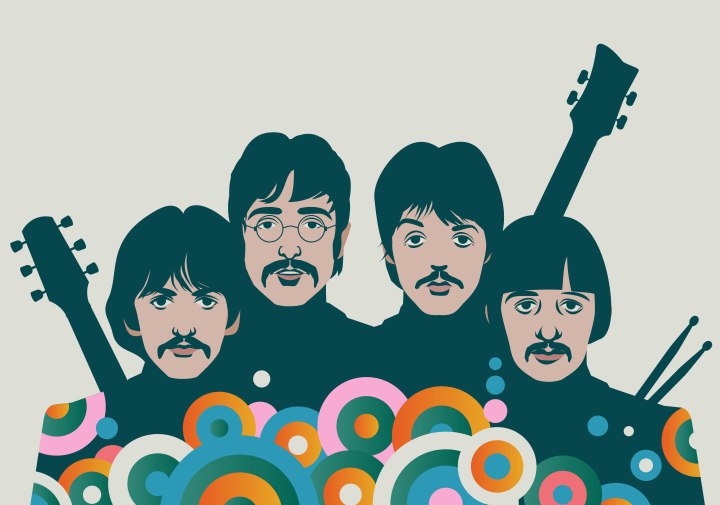Short Hair & Vintage Image

Can you give me your honest opinion? Do you think having very short hair (which I'm going to have pretty much sooner rather than later) will ruin my retro/vintage image? I'm just thinking that very short hair seems to be more of an 'in' kind of fashion thing rather than being associated with the retro style.
A: While it is true that most of the rockers of the 60s and 70s are known for longer, shaggy hair, it wasn’t a universal thing. There were rock stars of the 70s who suffered from receding hairlines. To name two, I offer Phil Collins and Maurice Gibb.
Maurice Gibb’s hair loss was clearly notable through archive photos as the years progressed, and while he always had thinning hair, he kept the length longer than was traditional for the time period (except among the younger generation) although he obviously was unable to pull off the looks his brothers Barry or Robin could manage. Among the rockers whose hair loss wasn’t quite as pronounced the trend remained toward longer length.
This is because long hair and rock music both had the ideal of being indicative of rebellion against conformity and traditional norms. It was an era that celebrated a “new age” and difference, and in the later portions began to celebrate both social and sexual freedoms. In this latter period, the longer hair was more a statement of acceptance of androgyny and hedonism.
But before I go off into a diatribe on social mores and counter-culture revolution, let’s address your specific questions. Regarding your image as front man for your band, the real question is what image do you want to portray? Most of the performers I know consider their onstage persona a “character” that they slip into when they get ready to perform. Once you have the specific image in mind, how does your current hair correspond to that image? Can you grow your hair into the look you want to present? (Since I don’t know the extent of your hair loss, I can’t really give specifics.)
And as far as the medications you are using are concerned, are they working for you? If they allow you to grow the hair you desire, then by all means look for a length that you can live with and work with it. However, if you still want “more hair” in spite of the medication, there are other venues to consider.
As odd as it may sound, hairpieces could present an option that works for you. It could be a partial piece to augment the hair you have, or an all-over wig that allows you to create the whole character of your on-stage image. If this is a professional endeavor (the band) such hairpieces would be business write-offs and tax deductible. As another option, assuming the hair you have is sufficient to support them, there is the possibility of extensions being used to fill in the thinner portions of the hair and add additional length.
As a personal opinion, I think you should remember that there are always exceptions to every rule, and that you can surely find a retro-style that suits your hair’s limits (or you can bypass them). Just try not to let your hair loss keep you from expressing your creativity.
©Hairfinder.com
See also:
Men's hairstyles
Vintage hairstyles